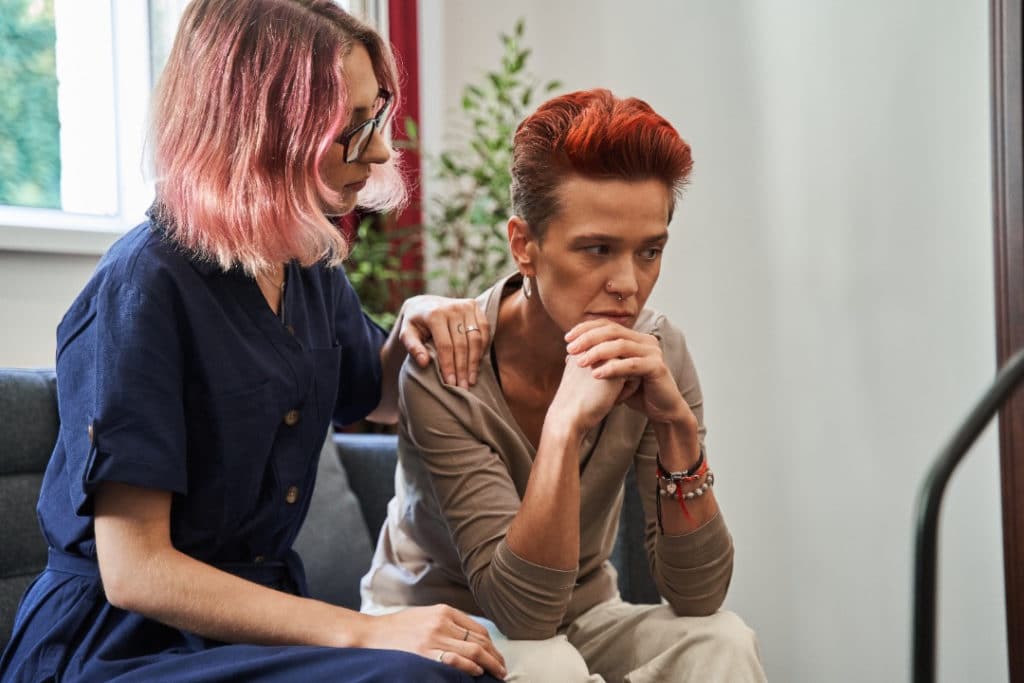When your partner is struggling with an eating disorder, naturally, your desire to show support in their recovery is high. It can feel tricky to do because even the most well-meaning encouragement may come off as dismissive or triggering to your loved one. Our good intentions of support will fall by the wayside once that happens.
So, what do you say to your significant other when they are struggling with disordered eating? Today, we’ll explore ways to connect with and support your partner during their recovery.
Knowing What to Stay Starts by Understanding What Your Partner Is Going Through
You may know “of” mental health conditions, but don’t confuse that with knowing “about” mental health conditions. Knowing what to say is important, but there isn’t a playbook of words that do and don’t work. If you want to know how to approach each day with your partner, start by educating yourself on what your partner is going through. There is an abundance of resources and information available online and offline, as well as through various treatment processes offered by eating disorder facilities. Surround yourself with this information, and you’ll know how to respond and react to your partner.
Avoid Comments About Your Partner’s Appearance
Belief can go a long way, but commenting on their appearance can have the opposite effect, especially when your partner is in recovery. Instead, focus on your partner’s inner self and emphasize their strength and best personality traits. Remind them they’re more than what they might think or feel about themselves.
Let the Words You Say Express Love + Support for Your Partner
Sometimes when we’re going through stressful times mentally or physically, reassurance can have a steadying effect. Your partner will undoubtedly be dealing with their fair share of fluctuating thoughts, and you can be a beacon of support by expressing your love and support in a consistent and daily manner. This can be as simple as being a good listener, being present, and allowing them to just “be.” It lets your partner know they are loved and in a safe space as they heal.
Communicate with Your Partner Even If It’s Uncomfortable
Mental health often carries a stigma that can make people uncomfortable speaking with others about their circumstances. Don’t let that be you and your partner. Communication is key, as it can help you tear down walls between you and help you both understand each other better. Lack of communication can isolate both parties and may leave an unnecessary amount of uncertainty in the room. You don’t have to force your partner to speak about how they feel, but let them know that the space to communicate is always open.
Emphasize the Importance of Finding the Right Support System
Everyone deserves support, no matter what mental health issues they are experiencing. So don’t give up on your partner. Encourage them to seek help from clinical experts and treatment programs to create a safe environment for growth and healing, and let them know that you will be walking alongside them throughout the process.
Team up with treatment centers like Toledo Center and enjoy comprehensive care and treatment programs designed to surround you with the necessary support for disordered eating and other conditions. With the backing of our residential eating disorder treatment, your spouse can get intensive help that keeps them directed on the path to healing.
Fill out a contact form today or call the Toledo Center for Eating Disorder Recovery today for more information on setting up your loved one with an eating disorder specialist.
Sources:
https://www.healthline.com/health/eating-disorder-relationship#1.-Issues-with-body-image-run-deep
https://www.mentalhelp.net/blogs/how-to-talk-to-someone-with-disordered-eating-habits/
https://recoverywarriors.com/the-dos-and-donts-of-helping-your-spouse-cope-with-an-eating-disorder/

